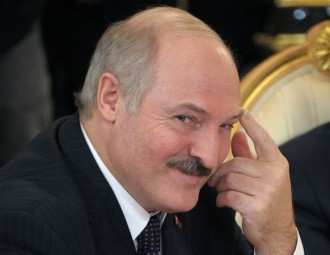Opinion: President Lukashenka may agree to compromise regarding new Prime Minister

Last week, at a meeting dedicated to the national security system, President Lukashenka requested those who want to work in the government to prove their worth.
Last month, the Belarusian Government resigned in the view of the newly elected president, however, until now the new Cabinet has not been formed, and President Lukashenka was quite ambiguous about the future Council of Ministers. Until the decision is made, Kabiakou-led Government is in charge. It is worth noting that analysts assessed the former Government as a transitional anti-crisis "government of bankers" with the main task to preserve macroeconomic stability before and during the presidential campaign.
Interestingly, right after the election the president was inclined to extend the Cabinet’s mandate. At a conference on topical development issues of Belarus he said, “The government and other power bodies for the next five years have been formed before the presidential election. As I said, the second presidential elections have been held this way. People need to know who will be working after the elections, if this president is elected”.
However, after the inauguration, the president has changed his rhetoric and has introduced some competitiveness among potential members of the new cabinet. Perhaps, this came as a result of internal negotiations between technocrats/free-market supporters and conservatives supporting preservation of the current economic policies. For instance, during the recent meeting on national security issues, the president emphasised, “I would not want to sign the appointments formally and mechanically”.
It is a tough choice for Lukashenka, who has quite a variety of candidates for the Prime Minister’s post – from market reforms supporters to micromanagers. Simultaneously, former Prime Minister and now acting head of the government Kabiakou is the best candidate, and chances are high that he will keep his post. Kabiakou has an extensive managerial experience in various state institutions, and indifferent position regarding the existing socio-economic model and the need for reforms. In fact, Kabiakou is the Prime Minister who could head the government of marketers, as well as micromanagers. Moreover, the outgoing government has received positive feedback from both, Belarusian economists and international financial institutions for its market-oriented efforts to preserve macroeconomic stability.
Analysts point out that depending on who will be appointed to lead the Government, will reflect Lukashenka’s development plans for the next five years. The choice of the Prime Minister will send a signal to society and international financial institutions regarding the Belarusian authorities’ commitments to economic reforms.
Lukashenka is likely to take a decision in nobody’s favour and appoint the government somewhat oriented on economic transformations without structural reforms.
-
03.01
-
07.10
-
22.09
-
17.08
-
12.08
-
30.09








































